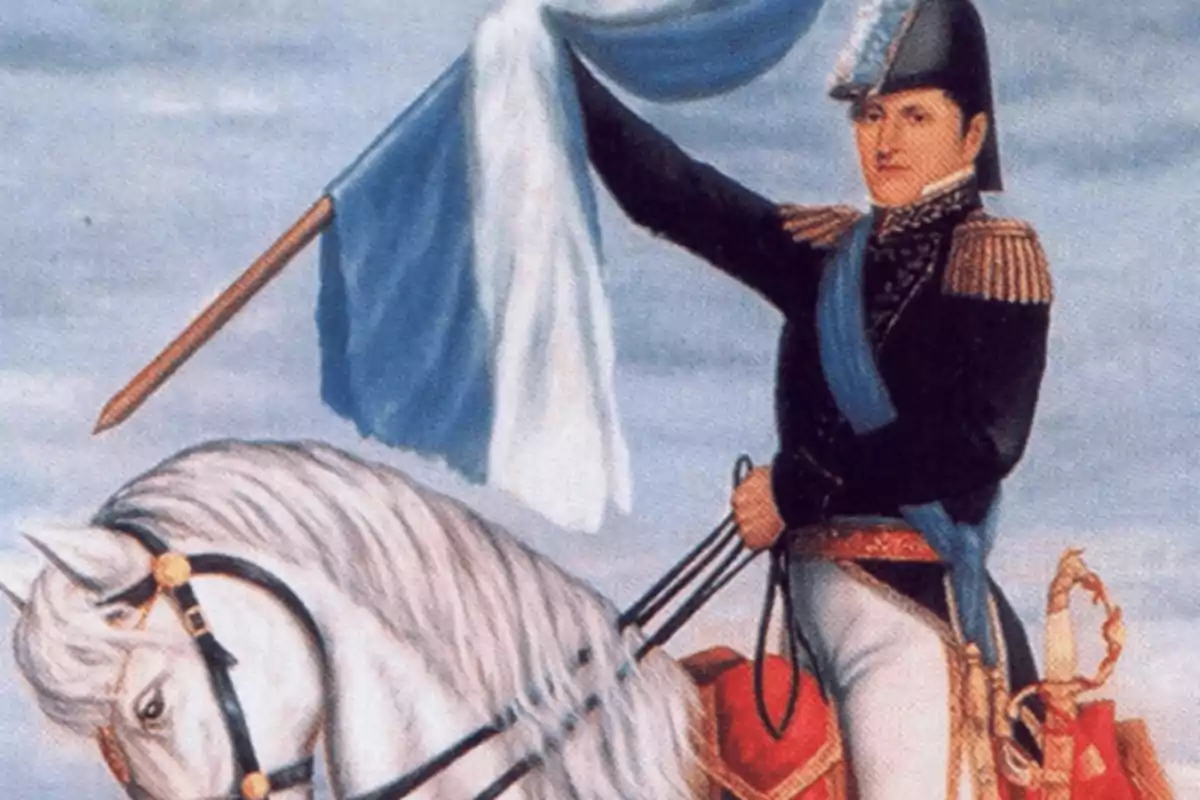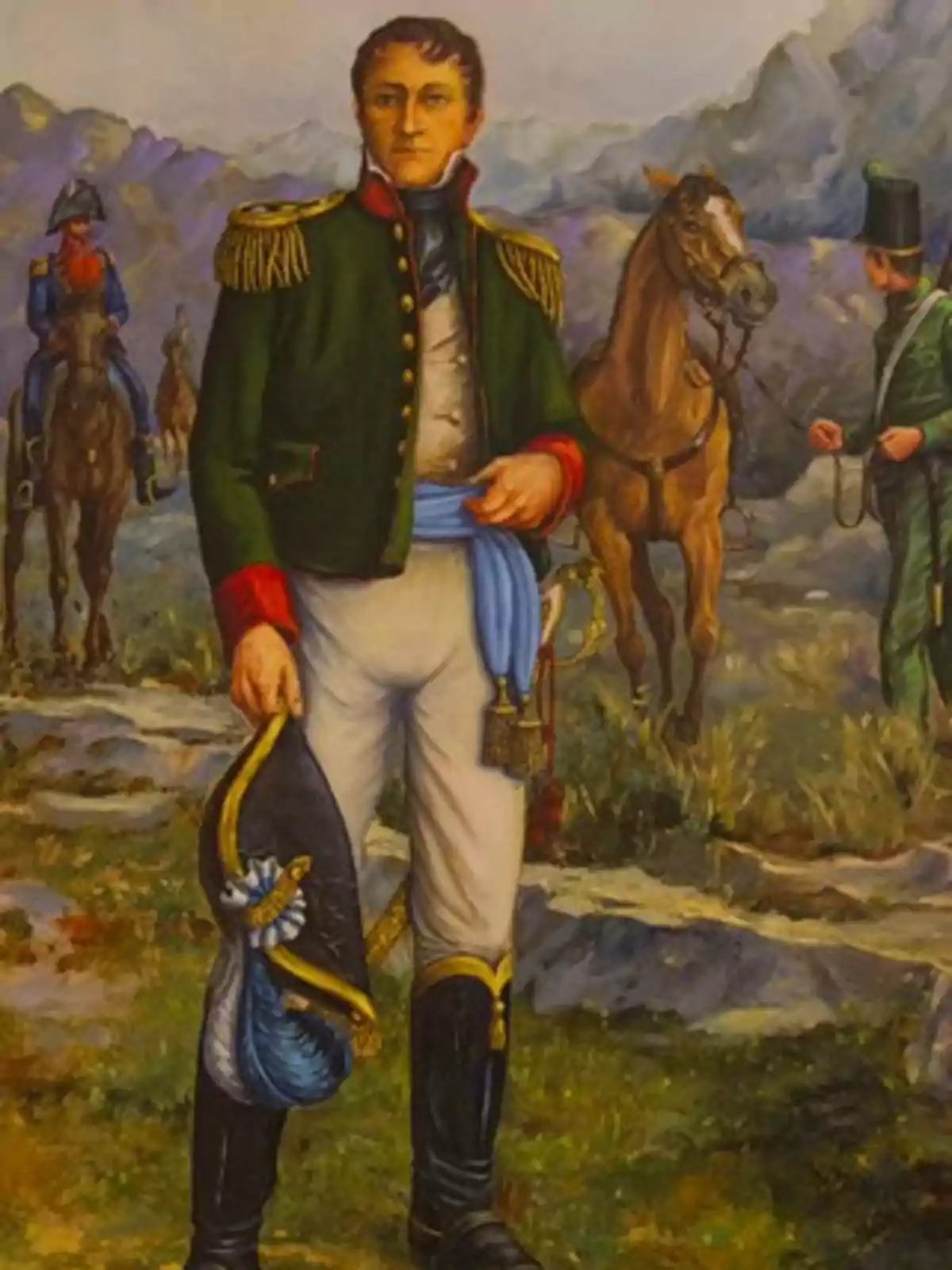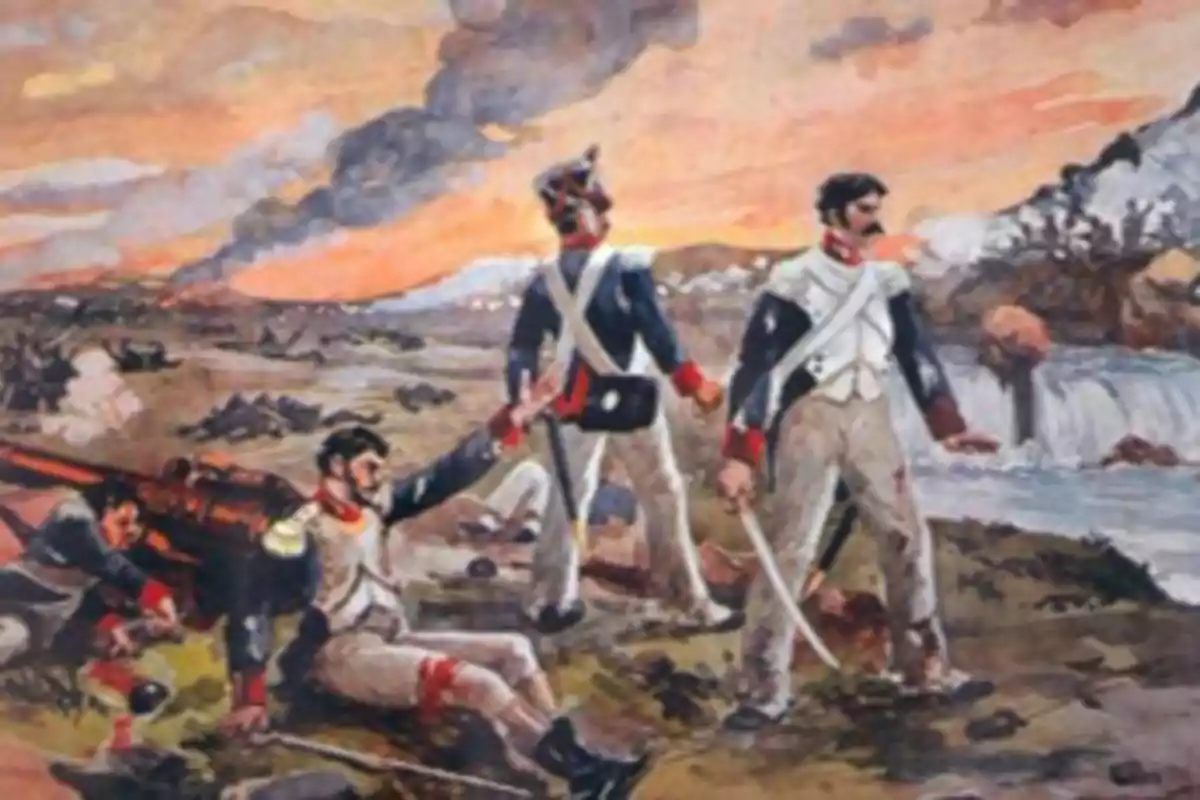
Flag Day: What was Manuel Belgrano like according to the perspective of one of his men
General José María Paz offered an honest and complex perspective on Manuel Belgrano in his memoirs
General José María Paz was one of the most astute, observant, intelligent, and distinguished figures among the heroes who founded our Nation.
In several passages of his Posthumous Memoirs, he conveys to us what General Manuel Belgrano was like, under whose command the Cordoban strategist served between 1812 and 1819; from the age of twenty-one to twenty-eight. Starting as a first lieutenant and rising to the rank of lieutenant colonel of cavalry, always in the Auxiliary Army of Peru, commonly known in our history as the "Army of the North."
Paz begins by stating that "General Belgrano (let it be said in his favor) was not a man of faction." Regarding the military aspect, the rigorous Cordoban continues: "General Belgrano, despite his great diligence, did not have, as he himself admits, extensive military knowledge, but he possessed sound judgment, unimpeachable honesty, the purest and most selfless patriotism, the most exquisite love of order, a decided enthusiasm for discipline, and a moral courage that was never in doubt. However, along with these eminent qualities, he had a certain lightness of character in judging the men he dealt with, which led to very notable mistakes, as can be seen in several passages of his own Memoir."
Indeed, one of the flaws that Paz most reproaches Belgrano for is how he allowed himself to be swayed by the first to approach him; those who managed to convince him and bend his judgment to their interests. It was then very difficult for the hero to return to his original opinion. Paz says: "First impressions had a powerful influence on him; so that if, in his initial interactions with a person, those impressions were favorable, that person could count on the General's benevolence for a long time, and on the contrary, when he had formed a poor opinion of someone, for certain acts, which, although reprehensible, did not deserve eternal condemnation, it was difficult to regain his good graces. As a result, he was easily misled, and we have seen officers, and even members of the troops, who were nothing but charlatans, who earned from him a great reputation for bravery and boldness. For example, when he wanted to send out intrepid men to scout the enemy, it was enough to win his esteem to volunteer to go into the midst of the opposing army, without much concern afterward for verifying whether or not the commitment had been fulfilled, and without much responsibility for the inaccuracy of their reports. The same happened with a commander or officer who, in theory, overcame the difficulties of an operation, or who volunteered to go and attack an enemy force with another half its size. The first impression that this charlatanism produced in his mind was usually lasting."

As an example of this, Paz himself provides us with an anecdote: "In the year '17, when I was a lieutenant colonel, and therefore could approach him more closely, recalling the unfortunate battle of Ayohuma, he said these decisive words: I lost that battle because of five cowardly commanders who did not live up to the opinion I had of them. He did not name them, but I know exactly to whom he was referring. However, they had previously earned his distinctions and his full confidence."

Paz also highlights the discipline that General Belgrano imposed on his army; which was a novelty, given the high degree of laxity that prevailed in that armed body: "I remember that we crossed the town of Jujuy in its entirety, without being allowed to separate, not even to get a little bread. We camped for three or four hours near the city, and we were not allowed to enter, nor to send our assistants to get us the most essential things: so rigorous and severe was General Belgrano, as I have just described."
Regarding the General's temperament, Paz highlights and praises it in this way: "The position of General Belgrano throughout the retreat is outstanding. No matter how critical our circumstances were, he never allowed himself to be overcome by the terror that often dominates ordinary souls, and no matter how great his responsibility, he faced it with heroic perseverance. In the most dangerous situations, he proved himself worthy of the position he held, encouraging the weak and imposing himself on those he considered faint-hearted, although sometimes using offensive causticity. He never despaired of the nation's well-being, looking with the greatest aversion at those who held pessimistic views.
I said before that he was endowed with great moral courage, because in fact he did not possess the spirited courage of a grenadier, which often leads a commander to place himself at the head of a column and charge the enemy. In the heat of battle, his attitude was focused, silent, and his faculties seemed suspended: he listened to what was said to him, and easily followed the rational suggestions made to him; but, when he spoke, it was always in the sense of advancing on the enemy, pursuing him, or, if the enemy was advancing, of halting and repelling him. His courage was more (if I may use the expression) civic than martial. It was like that of those Roman senators who perished impassively, seated in their curule chairs."
How did General Manuel Belgrano behave in defeat? He experienced it, and more than once. Paz is emphatic: "In the setbacks suffered by our forces under General Belgrano's command, he was always among the last to leave the battlefield, setting an example and lessening the severity of our losses. In the retreats that resulted from those setbacks, he always displayed admirable energy and a spirit of order; so that, despite our reverses, discipline was not relaxed, nor were there any disorders.
This was not the case in other retreats, such as those of Desaguadero and Sipe-Sipe, where there were scandals of all kinds, because, with the troops scattered, they only managed to regroup after eighty and even more than a hundred leagues. From there came those horrific combats, sometimes individual, sometimes on a larger scale, between the country people and the indigenous on one side, and the soldiers who had broken the bonds of obedience on the other; the former, to defend their persons and property, the latter, to invade them, which to some extent was excusable; for, not marching as a unit, with no regular distributions to meet their needs, they had to ask or take, and it is easy to see the path this opened to abuses."
With this, José María Paz concludes: "Honor to General Belgrano! He knew how to maintain order both in victory and in adversity. When he was in command during those days of mourning and misfortune, the country people and the indigenous would peacefully bring provisions to the small force in retreat; so far from showing us aversion, there was generally only a feeling of sympathetic sadness. There were no fratricidal quarrels, no towns rising up to finish off the remnants of the Army of Independence; none of the scandals that dishonor the American character and stain the most just of revolutions."
As an example of what has been said, he recounts this anecdote: "I remember that, the day after the defeat at Ayohúma, he had the diminished remnants of our army form a circle after roll call, and placing himself in the center, he recited the rosary, as was usually done. Beyond the religious sentiments involved in this action, he wanted to make it clear that our defeat had in no way altered order and discipline."
More posts: